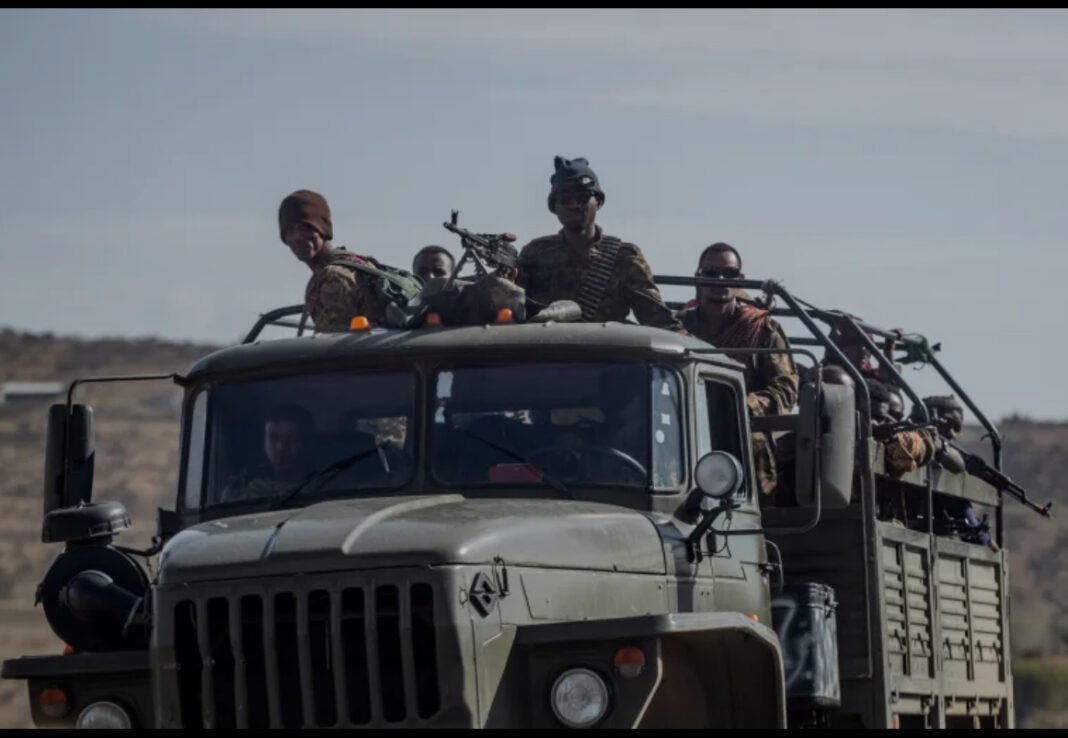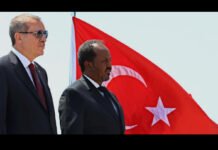By Horn Africa News
Tensions are flaring once again in northern Ethiopia, less than three years after the Pretoria peace agreement ended a brutal two-year war in the Tigray region. A new report by Deutsche Welle (DW) reveals that Eritrean forces are secretly backing armed groups inside Ethiopia, sparking fears among local residents that another devastating conflict may be on the horizon.
Residents of Mekele, the capital of Tigray, say they are living in fear and uncertainty. “We can’t make any plans. We are just trying to avoid another war,” said a local woman. Soaring living costs and a collapsing job market have worsened conditions in the region, where residents depend heavily on lasting peace to rebuild their lives.
During the previous war, Eritrean troops fought alongside Ethiopian federal forces under Prime Minister Abiy Ahmed against the Tigray People’s Liberation Front (TPLF). However, Eritrea was not included in the 2022 Pretoria peace deal—a move that angered the Asmara government. Analysts now warn that Eritrea may be arming rebel factions opposed to the Addis Ababa government.
Tigray itself is grappling with deep internal political fractures. The once-dominant TPLF is facing growing divisions. General Tadesse Werede, the former commander of the Tigray Defense Forces (TDF), has been appointed head of the region’s interim administration. He has dismissed claims of an impending war and insists that no hostilities are expected from Tigray’s side.
However, TPLF leader Debretsion Gebremichael has been accused of secretly collaborating with Eritrea—an allegation he firmly denies. He has called on the international community to put pressure on the Ethiopian federal government to prevent new tensions from erupting. The rift between Werede and Gebremichael has fueled concerns that political discord could escalate into renewed violence.
According to Gerrit Kurtz of the German Institute for International and Security Affairs (SWP), Eritrea views internal conflict in Ethiopia as an opportunity for political and security advantage. He noted that Eritrea is reportedly supporting armed Ethiopian opposition groups like the Fano militia, active in the Amhara region.
A deadly clash in March between Fano and federal forces left over 300 people dead, with Asmara widely blamed for fueling the violence. Observers believe Eritrea is using local militias to undermine the Ethiopian government’s strength.
A separate investigation by U.S.-based watchdog The Sentry alleges that Eritrea looted vast amounts of resources from Tigray during the last war. Gold, sesame, cultural artifacts, and even people were reportedly smuggled out and sold on international markets to finance Eritrea’s ongoing operations inside Ethiopia.
The report also claims Eritrea acquired weapons from countries like Russia after a UN arms embargo was lifted in 2018. Eritrean Information Minister Yemane Ghebremeskel dismissed the report as “fabricated” and designed to falsely blame Eritrea for the region’s troubles.
Meanwhile, Prime Minister Abiy Ahmed has come under fire for allegedly employing divide-and-rule tactics to weaken opposition groups and maintain power. Critics accuse him of selectively negotiating with some factions while cracking down on others.
There is growing concern that Abiy may exploit the Tigray crisis for political gain ahead of Ethiopia’s national elections next year. His renewed call for Ethiopia to secure access to a seaport—a stance that recently triggered diplomatic tensions with Somalia—has further fueled fears of a broader regional war.
As Ethiopia teeters on the edge of instability, observers warn that the fragile peace may soon collapse, with devastating consequences for the Horn of Africa.




